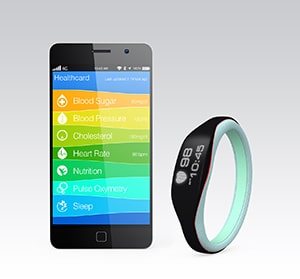The Rise of Sleep Apps
With the popularity of smartphones, people have begun to rely on them for everything from navigation to health. Weight loss and exercise apps have long been popular, but more recently people have begun using sleep apps to try to track how much and how well they are sleeping. We talked about what the aggregate data from these sleep trackers said about sleep quality in Sydney.
What’s good about these apps is that they can help people be more aware of the importance of sleep quality. It can help people pay attention to their sleep and do some basic things to try to improve their sleep quality. But, as the Sleep Health Foundation points out, these sleep apps can also be detrimental to sleep.
Why Sleep Apps Can Be Problematic

Sleep apps utilize the accelerometer built into the smartphone or Bluetooth-enabled device to track how much a person is moving during sleep. The app then calculates how well you were sleeping based on your movement. The data from the app is actually just a broad estimate, and may not be accurate at all. One study of an older-style Fitbit tracker showed that it overestimated the amount of sleep a person got by an average of 67 minutes. More than an hour! Most of us would love to get an extra hour’s sleep, but just because the app says it doesn’t mean your body feels it.
Because a sleep app might overestimate the amount of sleep you’re getting, you might think that a lack of sleep isn’t your problem. This means you won’t talk to a sleep doctor about your problem, which can lead to you not getting the help you need to sleep properly at night. Some apps also listen for snoring, and if your app doesn’t record snoring, you might think you don’t have sleep apnoea–even though not all sleep apnoea sufferers snore.
On the other hand, your sleep app might be interfering with your sleep. If anxiety is contributing to insomnia, the last thing you need is having to worry about your sleep statistics when you go to bed. And keeping your smartphone or other device in your bedroom can increase the risk that the light or distraction will interfere with your ability to sleep.
Overall, sleep apps can be interesting, but they’re not a substitute for professional evaluation and treatment of sleep disorders.
If you suspect that sleep apnoea might be interfering with your sleep, we can help. Please call (02) 9686 7375 for an appointment with a Sydney area sleep dentist at My Hills Dentist today.

